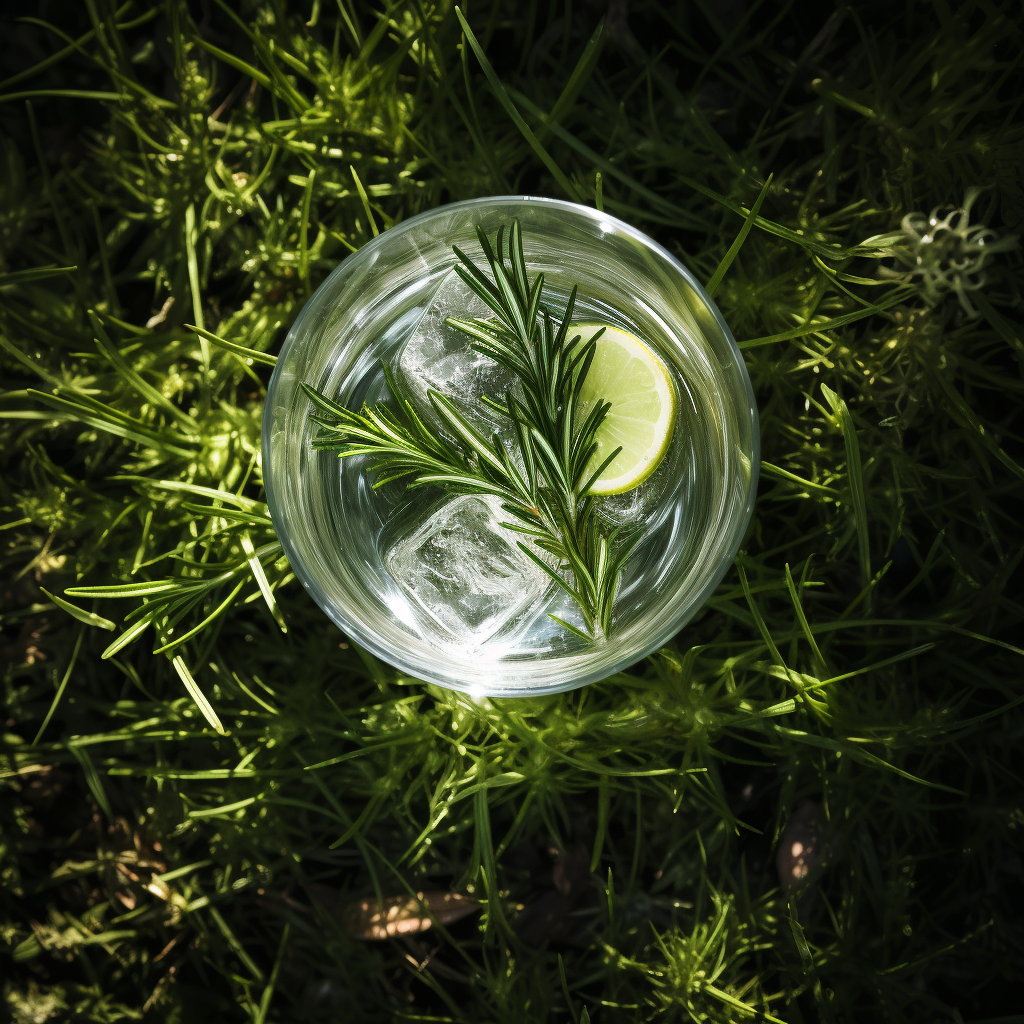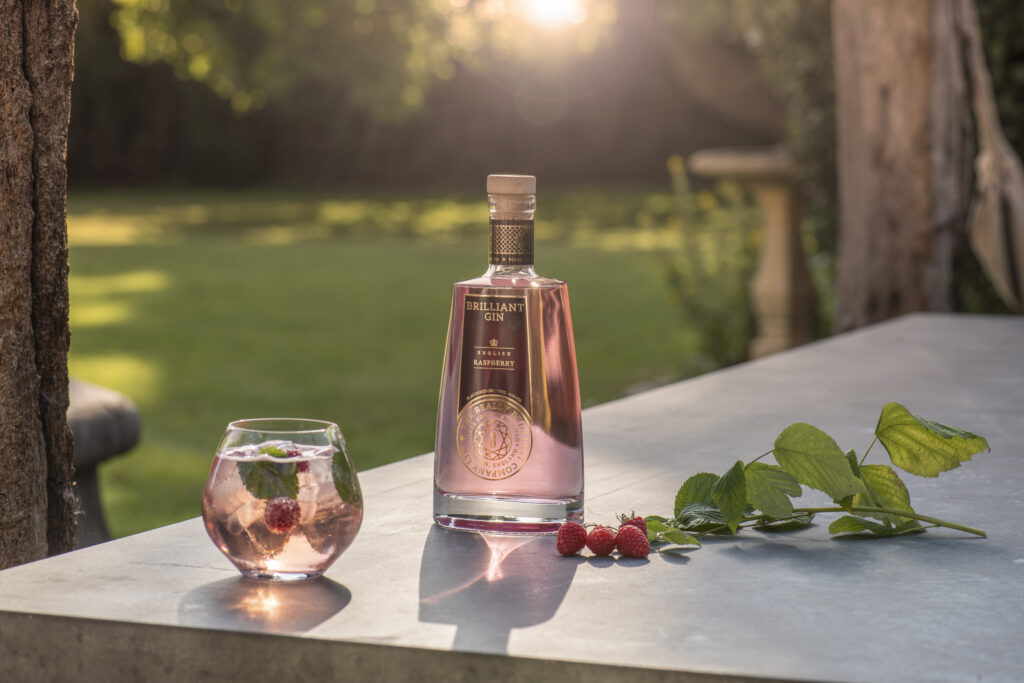In recent years, the allure of gin has seen a meteoric rise, paralleled only by the burgeoning adoption of veganism.

The UK, in particular, has witnessed a remarkable surge in veganism, with the vegan population quadrupling from 2014 to 2019. Furthermore, Veganuary 2021 saw record-breaking participation, illustrating that opting for a vegan lifestyle is far from limiting. Today, almost every indulgence and pleasure life offers can be enjoyed in a plant-based avatar, including our cherished libations.
The question of whether alcohol is vegan-friendly might seem unusual at first glance. After all, it’s uncommon to associate beverages with animal products. However, the truth is that many alcoholic drinks are disqualified from being vegan due to the use of animal derivatives in their filtration processes post-fermentation. Commonly used substances include isinglass, derived from fish swim bladders, gelatine (sourced from animal bones and ligaments), casein (a milk protein), and albumin (egg whites). Additionally, the use of refined sugar, often processed using charred animal bones, poses a hurdle for many beers and wines seeking vegan certification.
In contrast, gin presents a refreshing narrative. The distillation process intrinsic to spirit production—encompassing gin, vodka, white rum, and similar clear spirits—omits the need for any animal-derived filtering agents. This pivotal stage ensures the elimination of impurities, resulting in a pure, unadulterated spirit. Consequently, a vast majority of gin varieties are vegan-friendly, allowing those following a plant-based diet to partake without reservation.

Exceptions in the Gin World
While the news is predominantly positive, it’s important to note that not all gins are created equal in the eyes of vegan connoisseurs. A small fraction, approximately 5% according to the alcohol database Barnivore, still utilize non-vegan ingredients. The most common non-vegan additive is honey, incorporated for its distinct flavour profile. In rarer instances, isinglass may be employed during the filtration process, though its use is notably infrequent in gin production.
For those committed to a vegan lifestyle, the exploration of gin doesn’t have to be daunting. With the majority of gins being vegan by default thanks to their distillation process, the landscape is ripe for exploration. However, due diligence is recommended for the discerning vegan drinker. Checking resources like Barnivore, or consulting directly with gin producers, can provide assurance that your gin of choice aligns with vegan principles. Moreover, the growing demand for vegan products has led many distillers to explicitly label their gins as vegan-friendly, making it easier than ever to enjoy your favourite tipple guilt-free.
In conclusion, the intersection of gin and veganism is largely a harmonious one, with the spirit world accommodating plant-based preferences with open arms. As the vegan movement continues to gain momentum, the availability and variety of vegan-friendly gins are set to increase, ensuring that vegans can continue to enjoy the rich, botanical complexity of Brilliant gin without compromise. Whether you’re a long-time vegan or newly embracing the lifestyle, the world of gin welcomes you with a plethora of options that do not sacrifice taste for ethics.
Identifying whether an alcoholic drink adheres to vegan standards can sometimes feel like navigating a maze. Although regulations require the listing of ingredients on product labels, the inclusion of non-vegan substances used during the production process may not be explicitly stated. This gap in labelling standards means that a drink’s vegan status isn’t always immediately clear from the packaging alone.
However, the landscape of consumer goods, including alcoholic beverages, has become increasingly accommodating to veganism and other dietary preferences. The period from 2015 to 2019 saw a notable 58% increase in the launch of food and beverage products boasting vegan and plant-based claims, as highlighted by Innova Market Insights. This trend reflects a growing industry awareness and willingness to cater to diverse consumer needs.
While some products proudly carry the Vegan Society certification, the cost associated with obtaining this accreditation means that numerous vegan-friendly options might not be immediately identifiable as such. To navigate this, consumers are encouraged to visit the product’s official website or directly contact the manufacturer for confirmation of its vegan status. This inquiry should extend to both the manufacturing process and the final product. Additionally, resources like Barnivore offer a community-driven platform for sharing information on vegan alcoholic beverages, further aiding in the identification process.
When it comes to spirits, gin is not the only vegan-friendly option. Clear, distilled spirits are generally more likely to be vegan, especially when compared to beverages like beer, which may use animal products in filtering. Spirits such as vodka and white rum typically fall into the vegan category, thanks to their distillation processes. However, it’s always prudent to verify the vegan status of any alcoholic drink before consumption.
In response to the increasing demand for inclusive products, many manufacturers are expanding their offerings to include vegan options. An example of this trend is Baileys Almande, a dairy-free version of the traditional Irish Cream, crafted with soy and almonds. This innovation illustrates the industry’s move towards creating products that cater to a broader audience, ensuring that those following a vegan lifestyle have a variety of choices, from mainstream to artisan spirits.
The revelation that your preferred gin is vegan might have you eagerly anticipating your next G&T. However, the vegan status of tonic water deserves consideration as well. Tonic water, typically made from carbonated water, quinine, flavourings, and sweeteners, can sometimes contain honey, as seen in certain brands. This ingredient would make those particular tonic waters unsuitable for vegans.
Fortunately, many tonic water brands, including the popular Fever-Tree, are vegan-friendly, ensuring that vegans have access to suitable mixers for their cocktails. It’s advisable to scrutinise labels and, if necessary, reach out to manufacturers to confirm the vegan status of tonic waters. With a bit of research, finding delicious, vegan-compatible mixers to complement your gin is entirely feasible, allowing you to enjoy your favourite drinks without compromise.
All in all, it’s great news for vegans on the gin front! As gin grows ever more popular, and the number of us pursuing a vegan lifestyle increases, gin can remain very much part of your life. We’re proud that our Brilliant Gin is among those that can be enjoyed by vegans and non-vegans alike! Join the party!
Share this post with your fellow gin lovers and follow us on Facebook, Linkedin or Instagram.
Summersday, Spinney Lane, Itchenor, Chichester, West Sussex, PO20 7DJ
T: +44 (0) 1243 513810
Email: brilliant@brilliantgin.co.uk
Sign up today to get monthly gin recipes to your inbox and get 3 free today
Thats not all!
Every Gin Club member gets a 10% discount on our three fabulous Gins
